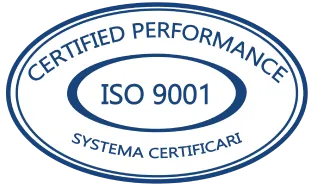Automation as a service
Expert-managed automation solutions on a subscription basis—scaling your operations without scaling complexity.


Are you..
Looking for an all-in-one solution to streamline your business processes through automation?
Feeling overwhelmed trying to automate workflows with various disconnected tools?
Seeking structured guidance to achieve specific automation goals for your business?
Looking for more control and flexibility in managing your business’s day-to-day operations?
Searching for expert support and feedback to take your business’s automation to the next level?
If the answer is “Yes” to any of the above, you are in the right place.
What is Automation as a service?
Automation as a Service (AaaS) is a subscription-based model that gives you access to powerful automation tools and expert support—without the burden of infrastructure costs or technical complexity.
Here’s what it typically includes:
- Ready-to-use automation templates
- Ongoing maintenance
- Technical support
- Regular feature updates

A customer places an order through your website or online store.

Automatically send a confirmation email with order details and an update once the order is dispatched.

Send a thank-you email along with a discount or special offer for the customer's next purchase.

Send a post-purchase survey or product review request once the product has been delivered.
How can automation as a service help you?

Reduce operational costs
Thanks to a standardized and automated onboarding process, training is successful every time.

Scale with confidence
Make all important documents digitally and signed available promptly and on time, without forgetting anything.

Maximize efficiency
Thanks to a standardized and automated onboarding process, training is successful every time.

Ensure business continuity
Onboarding is the first post application process that new team members get to know. Make sure they are convinced.

Access expert support
Thanks to a standardized and automated onboarding process, training is successful every time.

Stay competitive
Thanks to a standardized and automated onboarding process, training is successful every time.
Makeitfuture expertise
Backed by industry-recognized certifications and performance metrics






Clients
Automations
Years of experience
Best monthly automation services for small businesses
Revolutionize your business with personalized and scalable automation solutions that increase precision and reduce expenses. Stay ahead of the competition and focus on your fundamental goals with these cutting-edge operations .
Predictible pricing
Our Automation as a Service includes unlimited hours for maintenance, support, and new automation development.

Join Makeitfuture

Intrested, but not sure?
FAQs about automation as a service
Automation as a Service helps you streamline your business operations by automating repetitive tasks and connecting your systems. With this subscription service, you get ongoing access to customized automations designed to save you time and improve efficiency.
With our subscription model, you pay a monthly fee for ongoing access to our automation services. This includes the setup of automations, regular updates, and continuous optimization to ensure your workflows run smoothly. You can also scale the number of automations as your business grows.
You can automate a wide range of tasks including syncing data between platforms, automating customer communications, managing leads, creating reports, and more. Your workflows will be personalized to ensure they meet the specific needs of your business.
If you need assistance or want to adjust your automations, support is always available. Whether you need troubleshooting, changes, or just want to ensure your workflows are working at their best, we’re here to help, making sure your automations keep up with your business needs.












